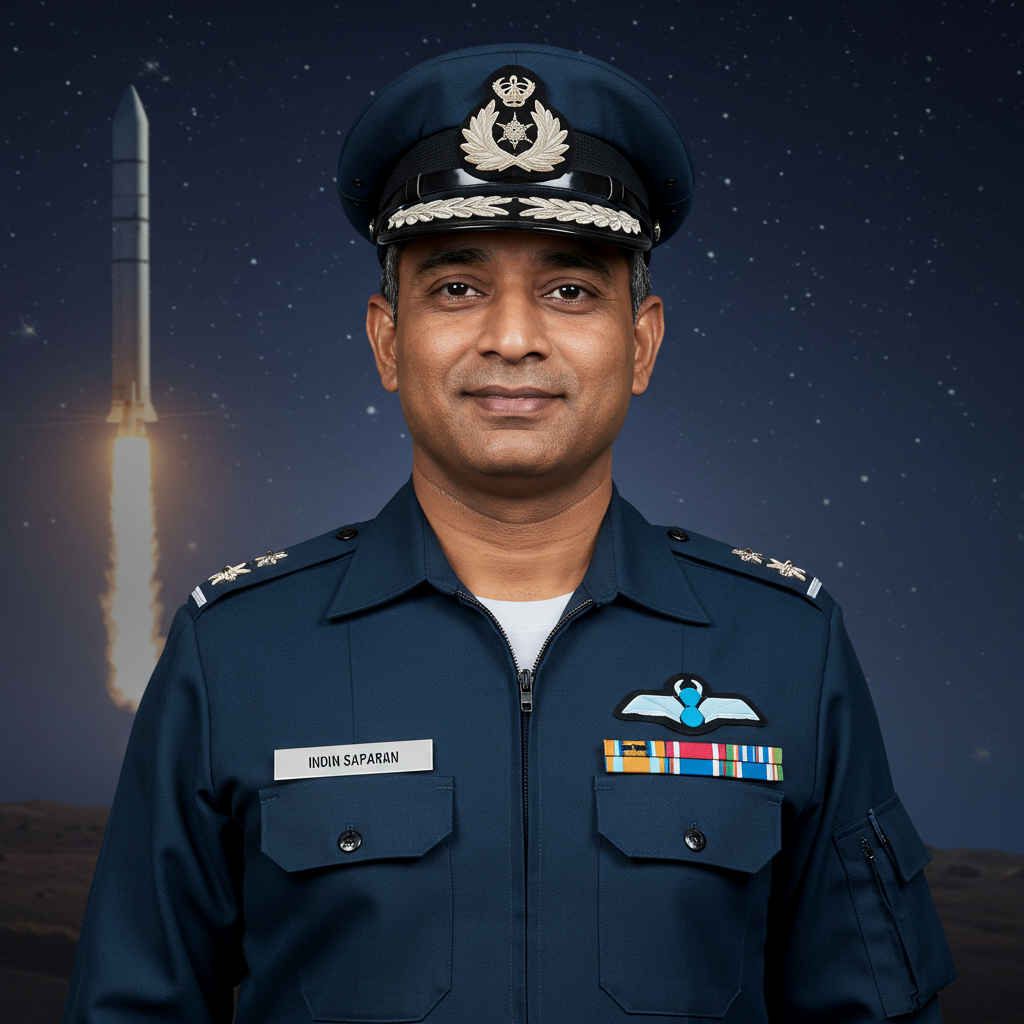Group Captain Shubhanshu Shukla of the Indian Air Force is poised to etch his name into history as the pilot of the Axiom Mission 4 (Ax-4), a landmark commercial spaceflight. Set to launch on June 10th from NASA’s iconic Kennedy Space Center in Florida, the mission will see Shukla become only the second Indian ever to journey to space and the first to visit the International Space Station (ISS).
This momentous flight marks a significant return to human space exploration for India, occurring 41 years after Wing Commander Rakesh Sharma’s pioneering voyage aboard a Russian Soyuz spacecraft in 1984. While Sharma spent nearly eight days in orbit, Shukla’s mission promises new frontiers and valuable experience for India’s burgeoning space program.
The Ax-4 Mission: An International Endeavor
The Axiom Mission 4 is a multi-country collaboration, facilitated by Houston-based private company Axiom Space. The four-member crew is commanded by the highly experienced former NASA astronaut Peggy Whitson, who holds the record for the longest cumulative time in space by an American astronaut and has previously commanded the ISS twice.
Alongside Group Captain Shukla, the crew includes Slawosz Uznanski-Wisniewski from Poland and Tibor Kapu from Hungary. For both Poland and Hungary, the Ax-4 mission is particularly historic, marking their first government-sponsored human spaceflight in over four decades and their first presence together on the ISS. This diverse crew underscores how commercial space missions are opening new avenues for national space programs worldwide.
Launching aboard a SpaceX Crew Dragon capsule atop a Falcon 9 rocket, the crew is scheduled to spend up to 14 days docked at the International Space Station. The pilot’s role is critical, serving as second-in-command to the mission commander and assisting with vital spacecraft operations during launch, docking, undocking, and the return to Earth. The crew has been in quarantine since late May as part of their final preparations and even introduced a small toy swan named “Joy” as their unofficial fifth crew member during a recent press conference.
India’s Investment and Future Ambitions
The Ax-4 mission holds immense strategic importance for the Indian Space Research Organisation (Isro). Isro has invested 5 billion rupees ($59m; £43m) to secure Group Captain Shukla’s seat and rigorous training for this mission. Isro officials view this as a “unique exciting opportunity” with “phenomenal” benefits for India’s future space endeavors.
The experience gained by Group Captain Shukla on the ISS will be invaluable, providing direct exposure to cutting-edge facilities and expertise in conducting joint experiments in microgravity. This aligns perfectly with India’s ambitious space roadmap, which includes:
- The Gaganyaan mission: India’s first-ever human spaceflight program, targeted for 2027, aiming to send three astronauts to an orbit of 400km for three days. Group Captain Shukla, already shortlisted among four candidates for Gaganyaan last year, brings crucial hands-on experience to this program.
- Establishing a space station by 2035.
- Sending an astronaut to the Moon by 2040.
- Crop Seeds: Investigating the impact of spaceflight on six varieties of crop seeds to assess their viability for cultivation in space for future long-duration missions. Plants grown from these seeds will be studied over multiple generations.
- Microalgae: Growing three strains of microalgae to identify the most suitable candidates for use as food, fuel, or in life support systems in microgravity.
- Tardigrades: Studying how these resilient micro-animals, known for surviving extreme environments on Earth, fare in space, examining their revival, reproduction, and comparing space-flown populations to ground controls.
- Muscle Loss: Researching the mechanisms behind muscle atrophy in space and exploring potential treatments.
- Computer Screen Impact: Examining the physical and cognitive effects of using computer screens in microgravity, including how gaze fixation and rapid eye movements are affected, which could influence future spacecraft computer interface design.
- https://www.bbc.com/news/articles/ce80glkl7nno
- https://www.bbc.co.uk/news/articles/ce80glkl7nno
- https://freerepublic.com/focus/f-chat/4320880/posts
- https://themorningnews.com/news/2025/06/04/indian-air-force-pilot-set-for-historic-spaceflight-to-iss/
- https://www.axiomspace.com/missions/ax4
Isro is actively conducting tests for Gaganyaan, including a planned mission in December involving a female humanoid robot.
Cutting-Edge Science in Orbit
Beyond piloting duties, Group Captain Shukla and the Ax-4 crew will have a demanding schedule focused on scientific research. The mission includes approximately 60 scientific studies and activities from 31 countries, making it the most research-intensive Axiom mission to date. Seven of these experiments originate from India, aiming to deepen our understanding of space’s effects on biology and microgravity environments.
Key Indian experiments include:
These diverse studies highlight India’s commitment to contributing valuable scientific knowledge from space.
A Journey Carrying a Billion Hopes
Group Captain Shukla, a decorated fighter pilot with over 2,000 hours of flying experience, described the past year of rigorous physical and psychological training as “nothing short of transformative.” Expressing his profound excitement, he stated, “It has been an amazing journey so far, but the best is yet to come.”
“As I go into space, I carry not just instruments and equipment,” Shukla shared. “I carry hopes and dreams of a billion hearts. I request all Indians to pray for the success of our mission.”
His family shares in the immense pride, particularly his sister, who recounted his entry into the Air Force as an almost “accidental” turn of events that he never looked back from. They see his journey as a powerful inspiration for the next generation. Isro is planning special interactions for Group Captain Shukla to connect with Indian students from orbit, hoping to ignite their passion for space technology.
As the launch date approaches, the nation watches with anticipation, celebrating a historic step for India in the new era of commercial space exploration.



